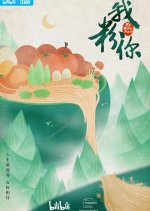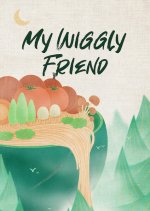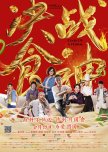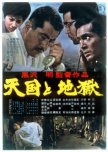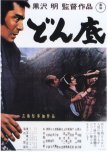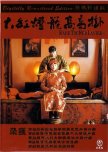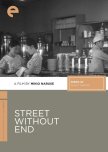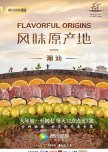In this five-part documentary series, take a deep dive into an unassuming but profoundly impactful food in Chinese cuisine: rice noodles. (Source: Netflix) Edit Translation
- English
- magyar / magyar nyelv
- עברית / עִבְרִית
- dansk
- Native Title: 我粉你
- Also Known As: Wo Fen Ni
- Genres: Food, Documentary
Where to Watch My Wiggly Friend
Subscription (sub)
Reviews

This review may contain spoilers
"Tastes of life"
My Wiggly Friend takes viewers on a taste tour of rice noodles in China. The documentary covered different dishes as well as the devoted chefs who lovingly prepared them. Each short episode focused on three different restaurants from three different regions. First developed in Jiangxi 1800 years ago, Jiangxi alone produces more than 1.4 metric tons of rice noodles a year! Suffice to say this documentary only opened the door to a wider array of noodle creations.Episode 1 covered Sour Noodles made by a bad-tempered chef with tomatoes that had been fermented for a year. The dish was garnished with Litsea oil. In another city, two brothers created River Snail Rice Noodles with pickled bamboo shoots. The draw for customers was the "stinky" aroma. I'm not sure if it was a bad translation but the narrator called the pickled bamboo shoots a "biochemical weapon." At the last place, an older couple made Old Friend Rice Noodles out of pork and chicken, fermented black soybeans, and fermented bamboo shoots. The "stinky" soup was said to make you "sweaty and full". All of the dishes were described as strange which could have been a subbing problem.
Episode 2 began with truck drivers stopping at a 24-hour truck stop where Mutton Rice Noodles were served by a mother and daughter. The soup began with a goat skeleton being used to make the broth. Scalding Rice Noodles was the next stop with father and son chefs. They were known for their spicy tripe noodles. The father tested his son's ability to make Rice Noodles with Eel Gravy before agreeing to hand the restaurant over to him. Finally, Termite Mushroom and Chicken Rice Noodles was cooked by an older chef for his wife using his family's traditional method of slow cooking it in a wooden chest.
Episode 3 began with a family famed for their Lard Stirred Noodles made with lard extracted from pork belly. Next a bickering mother-in-law and daughter-in-law sold Spicy Noodles out of their food truck to hungry office workers. Lastly, was the bland but strong Brine Soaked Noodles with crispy pork and pickled string beans described as something of which you "cant dodge the strong smell".
Episode 4 was for the more adventurous as it featured a small breakfast shop in a market across from an open-air butcher. The sour and bitter soup was made using cow intestines with the digested grass still inside-Beef Sapei Noodles. It was accompanied by fried beef skin. From turf to surf, the next culinary adventure was Seafood Rice Noodles made with fresh seafood and sand worms. The last stop in the episode was food from the mud-Cattail Root Rice Noodles made from Cattail roots and jellied pork blood.
Episode 5 explored different shaped rice noodles. The first up was a dish made by a rice roll master who filled Cloth Rice Rolls with meet or eggs, like one might a crepe or burrito. Stop 2 featured Diamond Rice Stir Fry and also a beef bone soup with rice lumps. The final visit was to a place where the chef made Duck Soup with Rice Pellets. Said to have a mild flavor, it was good for children and older people because it required little chewing.
Most of the restaurants shown were run by families or friends and had been in business from 20-50 years. Some of the people gave back by teaching a new generation the old techniques. The people running the businesses and cooking, like hard working people in the food industry everywhere, worked long hours. They were all doing something they loved and found rewarding, but it was time consuming. The documentary could be heavy-handed with the older couples being romantic and glossing over the families where the children of the busy owners missed out on attention. I did feel bad for the son being tested on the eel rice noodle dish. He'd been cooking since he was twenty and it took his elderly father over twenty-five years to give him a compliment!
I can't say that the majority of dishes made my mouth water but I'm fascinated with what people eat and how they prepare the dishes. It was also interesting how different places utilized the local food sources whether it was termite mushrooms or sand worms. The photography was skillful during the food preparation scenes and also gave glimpses into the varied cities and villages. Word of warning: if you are a vegan or squeamish you may want to avoid this show as there were butchering scenes and numerous animal prep scenes.
I enjoyed the insight into the creative and dedicated cooks who not only worked to keep traditions alive but innovated as well. If you enjoy food documentaries, this ode to China's love affair with rice noodles would be worth a try.
"Those who work hard definitely have some good luck."
3/25/23
Was this review helpful to you?
Recommendations
There have been no recommendations submitted. Be the first and add one.



